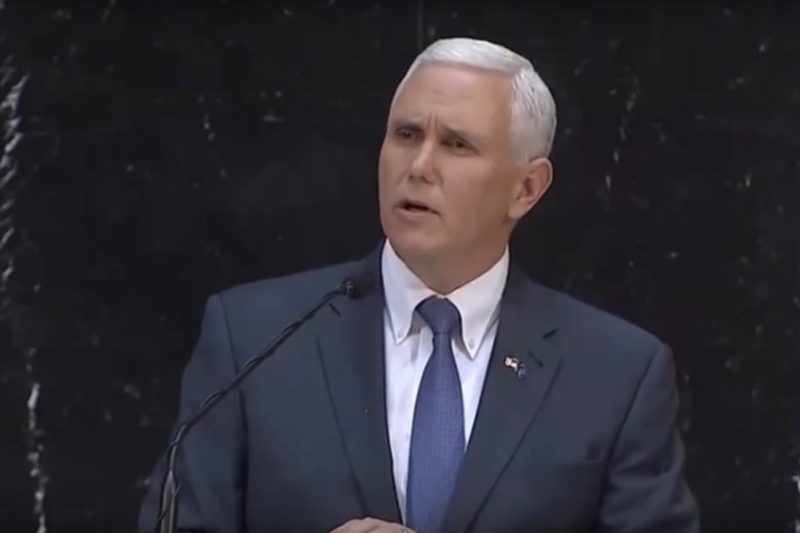Indiana Republicans Push Abortion Ban for Fetal Anomalies
Gov. Mike Pence (R) in July directed the Indiana State Department of Health to investigate Planned Parenthood-affiliated reproductive health-care clinics in the state, and the investigation concluded that the organization was in compliance with the state’s fetal tissue regulations.

A bill to ban abortion due to the sex or diagnosed disability of a fetus is making its way through the Indiana legislature after a similar bill failed in 2015. This year’s version includes a provision targeting fetal tissue donation.
SB 313, sponsored by state Sen. Travis Holdman (R-Markle), bans physicians from performing an abortion if the physician “knows that the pregnant woman is seeking the abortion solely because of: (1) the race, color, national origin, ancestry, or sex of the fetus; or (2) a diagnosis or potential diagnosis of the fetus having Down syndrome or any other disability.”
The proposal would require physicians to provide information about perinatal hospice care to a pregnant person who is considering an abortion because the fetus has been diagnosed with a lethal anomaly.
There is no documentation that sex-selection abortions are a widespread problem in the United States. Proponents of the bans often justify them by using cultural stereotypes that target immigrant women of color.
Disability advocates say these types of anti-choice measures, introduced in several states in recent years, often promote false stereotypes of people with disabilities and their families.
Holdman, who introduced a similar bill in 2015 that failed to pass the GOP-held legislature, told the Indianapolis Star that SB 313 “sends one clear message to the nation and to our fellow Hoosiers and that is that we value human life.”
The main change to this year’s version of the bill is that it prohibits a person from acquiring, receiving, selling, or transferring fetal tissue, and makes it a Level 5 felony to transfer and collect fetal tissue. A Level 5 felony conviction carries a penalty between one and six years in prison, and a fine of up to $10,000. It’s already a federal crime to sell fetal tissue for profit. Donation or transfer of fetal tissue for research or transplantation is legal under federal law.
The bill provides an exemption if the transfer or receipt of fetal tissue was requested “in writing by a biological parent” for the purposes of research or transplantation.
There have been several pieces of legislation introduced in state legislatures this year that have sought to ban the donation of fetal tissue. Republican lawmakers have justified the proposals after heavily edited attack videos created and circulated by an anti-choice front group claimed Planned Parenthood was illegally selling tissue for profit from aborted fetuses. GOP-led investigations into the health-care organization have turned up no wrongdoing, and the officials from the front group have been indicted on charges related to the videos.
Gov. Mike Pence (R) in July directed the Indiana State Department of Health to investigate Planned Parenthood-affiliated reproductive health-care clinics in the state, and the investigation concluded that the organization was in compliance with the state’s fetal tissue regulations.
Sue Swayze, vice president of public affairs for Indiana Right to Life, told WXIN that the bill will encourage patients to seek alternatives to abortion care due to a fetal abnormality. “We value life, all types of life, it doesn’t have to be a normal, perfect, healthy child, we value everyone and they are welcome here,” Swayze said.
State Sen. Liz Brown (R-Fort Wayne) claimed during a senate committee hearing that the bill is necessary because doctors are not providing patients with enough information and may be pressuring them into terminating pregnancies.
“What we have found is besides doctors pressuring women to have the abortion, they are not giving them the care and being compassionate in terms of what these women are facing,” Brown said, reported Indiana Public Media.
State Sen. Jean Breaux (D-Indianapolis) told the Indianapolis Star that the bill is motivated by politics and restricting access to reproductive health care. “Abortion remains a deeply personal and sometimes very complex decision that must be left to the woman, her family and her faith,” Breaux said.
Some lawmakers who voted against the anti-choice measure said that it would have a chilling effect on those seeking prenatal care.
“If you and your wife were to go home and say, we don’t want to take that chance that we would have a child born with Down syndrome or some other disability, you couldn’t do that,” state Sen. Greg Taylor (D-Indianapolis) told WXIN.
Judi Morrison, vice president of education and marketing for Planned Parenthood of Indiana and Kentucky, said in a statement that the legislation has implications for Indiana residents facing unexpected and difficult decisions during their pregnancy and violates the trust between pregnant people and their physicians.
“It would force physicians to speculate on a woman’s motives for the decisions she makes about her pregnancy. These are not decisions that should be made by politicians,” Morrison said.
Indiana ranked 23rd in providing services to residents with intellectual and developmental disabilities and their families, according to a 2015 report by United Cerebral Palsy (UCP), an advocacy organization providing support services for children and adults with a spectrum of disabilities.
SB 313 was passed by the GOP-majority state senate this month in a vote of 35 to 14, with four Republicans joining ten Democrats in voting against the bill. The bill has been introduced into the house, where Republicans hold a 71-29 majority.

